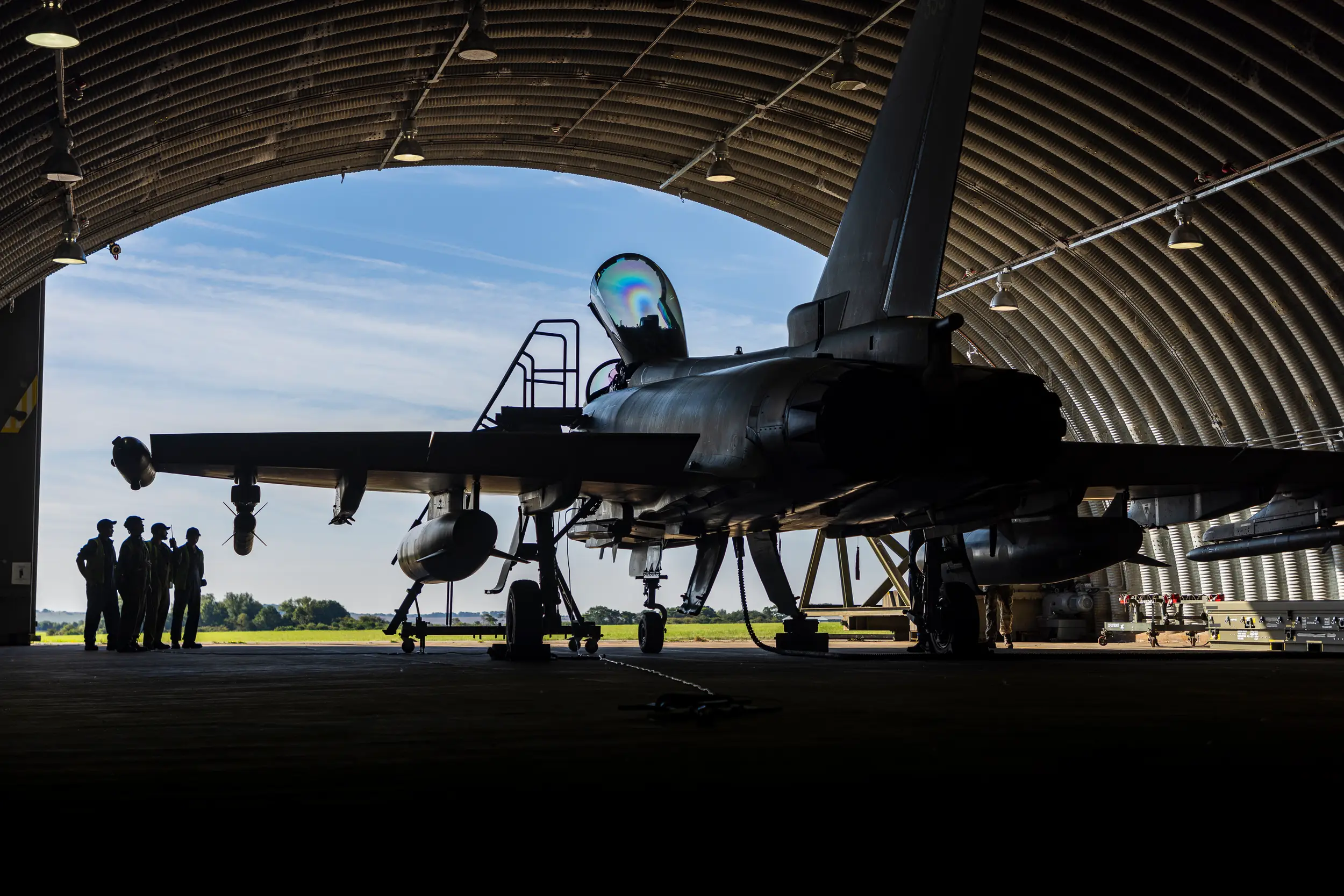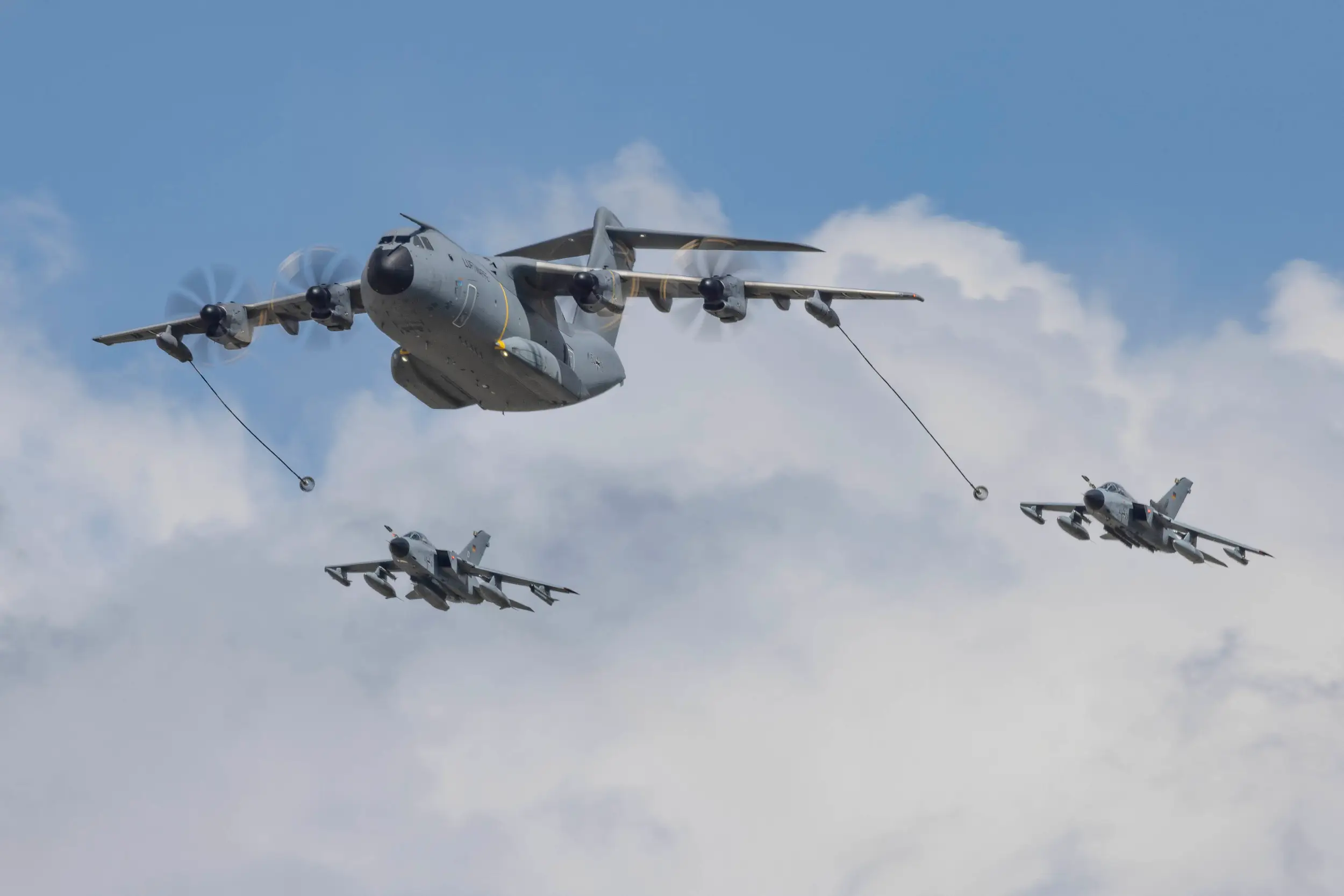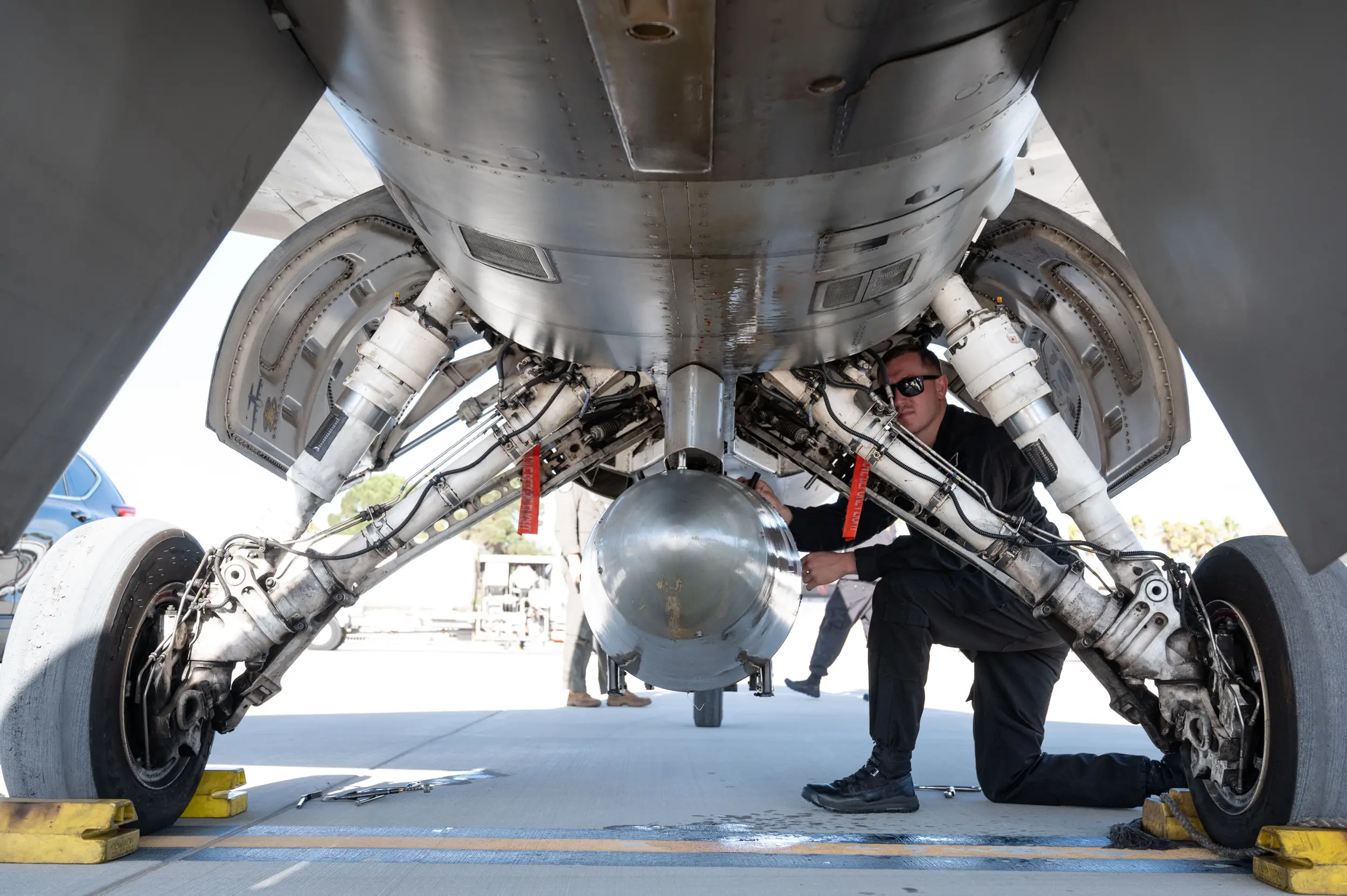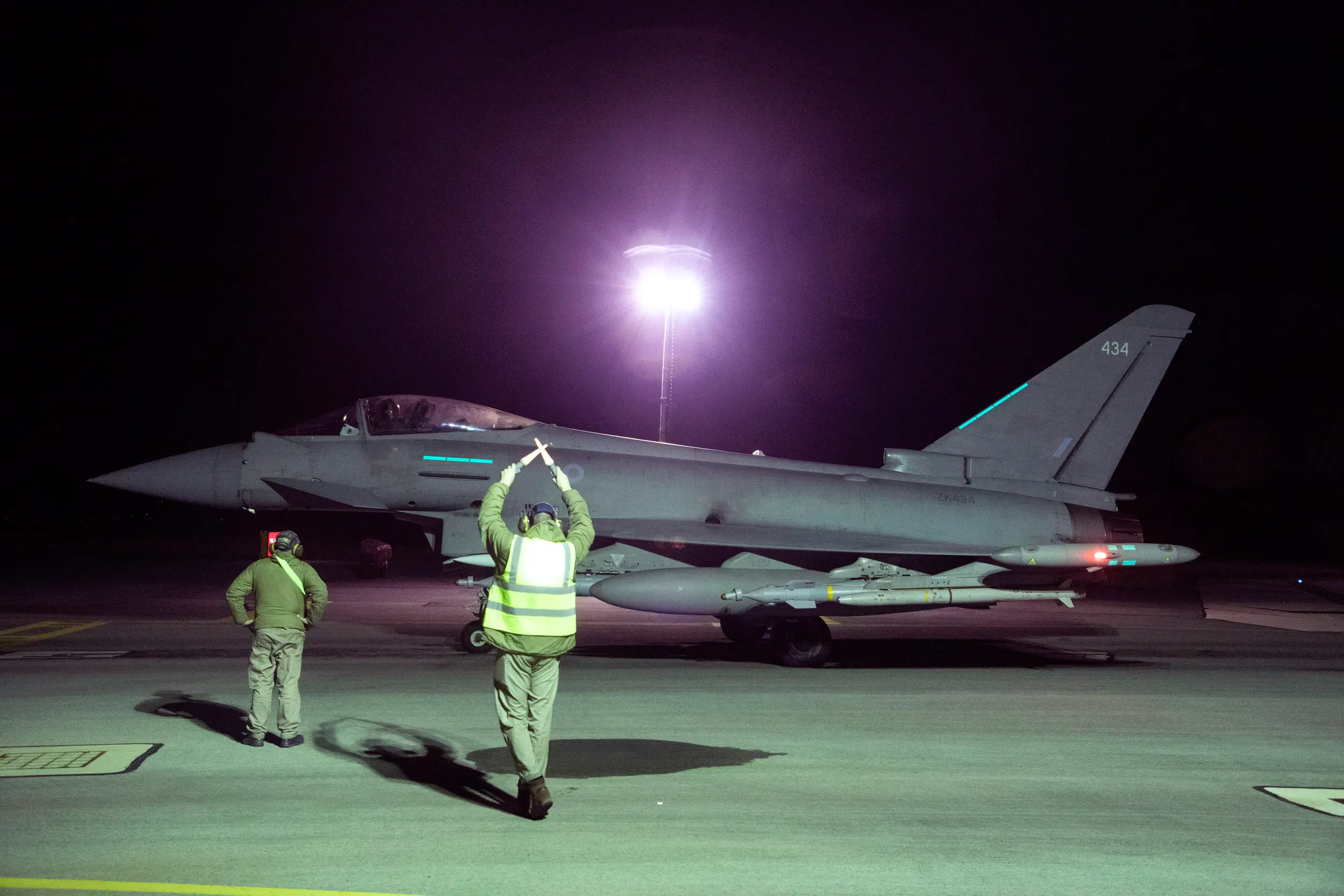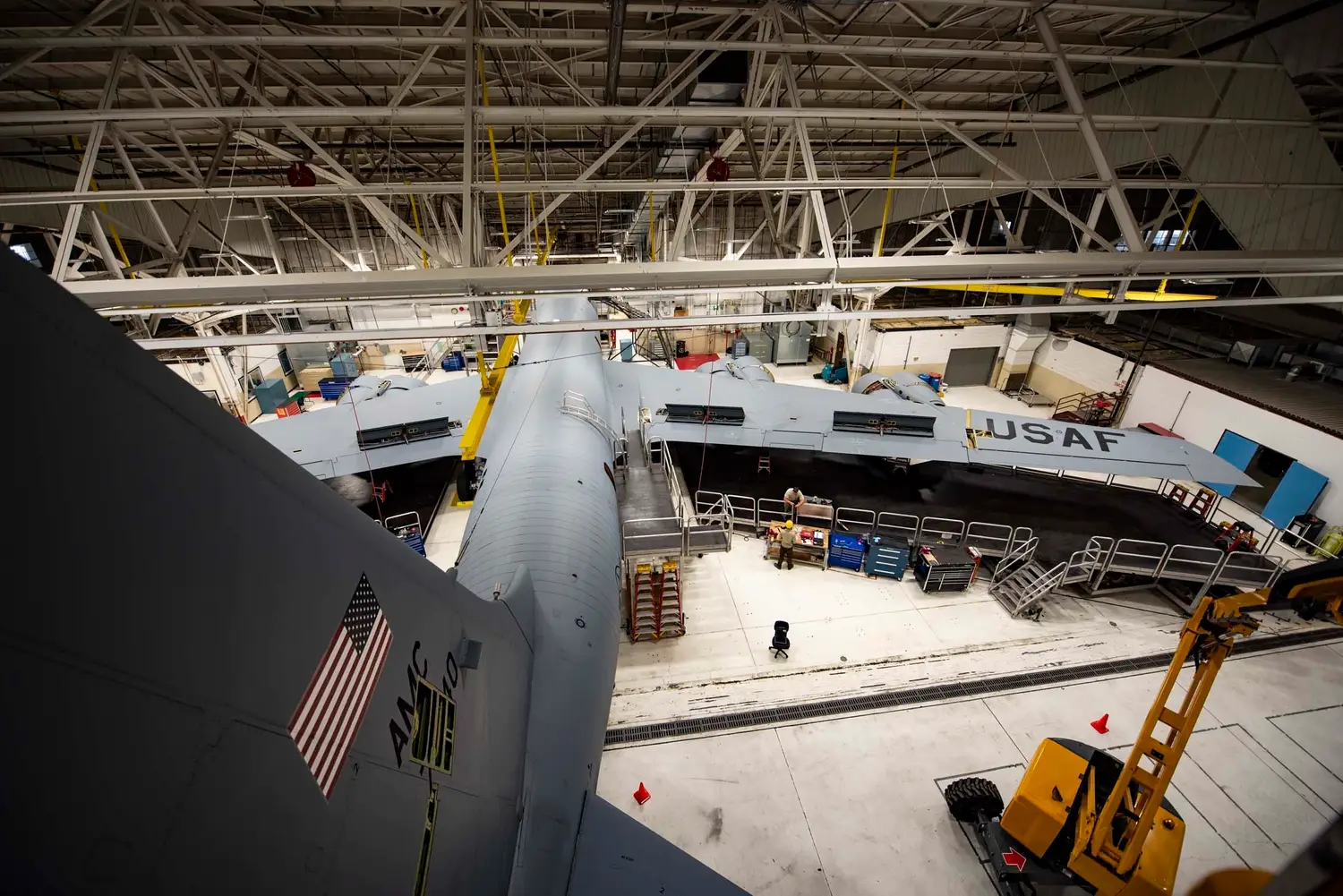READINESS REIMAGINED > SUSTAINMENT AND SUPPORT IN AN UNPREDICTABLE WORLD
studio | READINESS REIMAGINED | CHAPTER 1
In the face of global instability, European governments are taking a fresh look at in-country weapon platform sustainment capability. Central to this are strategies that enhance in-country defence capabilities, indigenised sustainment programmes, and industry collaboration.
Support teams provide engineering and logistics to RAF Typhoons on rapid dispersal as part of Exercise Agile Pirate 10 (Royal Air Force image)
European nations face a shifting military landscape. The disruption caused by recent events – notably the Ukraine war – has highlighted the need for nations to possess in-country capability, which is crucial in ensuring national sovereignty.
A prime example is Germany, which has increased its defence budget to modernise its armed forces, announcing in 2022 that it would spend more than 2% of its GDP on defence.
According to Germany’s Defence Policy Guidelines 2023, this significant increase in the defence budget will be necessary to ‘make investments in capability development possible despite significantly increased operating, in-service use and maintenance costs’.
The move highlights a broader European trend towards enhanced military readiness and capability, which will place natural demands on sustainment in the future.
The Impact of Global Events on Military Readiness
'Our interest in maintaining the rules-based international order should be firmly defended, especially in view of an international environment that is increasingly characterised by volatility and multi-polarity,’ Berlin’s 2023 defence policy document stated, adding that this meant intensifying defence cooperation, mainly through defence diplomacy, regular military presence, armaments cooperation and capability building.
A German Air Force A400 conducts a mid air refueling exercise at the Royal International Air Tattoo 2023 (Royal Air Force image)
Industry Response to Evolving Military Demands
These evolving demands are a key focus for Collins Aerospace, an RTX business, which operates service centres located strategically worldwide.
Michael Nelson, Collins Aerospace’s Associate Director for Military Avionics Service Centres, said his team is working closely with the German service centre in Heidelberg to examine how it can better support the broader European base.
The idea would be to offer capabilities in the German centre rather than European customers needing to send their equipment to the US. This would reduce a range of import/export demands and provide obvious benefits in terms of time and distance.
‘If there’s a way we could bring that capability to Germany, we could significantly help our customers there by optimising the repair process and reducing that time.’
Service centres reduce overhaul and maintenance time by providing dispersed logistical support (Royal Air Force image)
Collins Aerospace works to overcome challenges with turnaround time on several levels. First, it focuses on its equipment capacity to address parts obsolescence, Nelson noted.
‘As the units age, the parts are less available, and in some cases, capability diminishes over time,’ he said.
The company focuses on its capacity planning capabilities, providing the ability to re-host equipment through newer systems. It can also work closely with customers to remove a capability when necessary, replacing it with a new system.
There are also external challenges to consider, such as governmental regulatory requirements around certain programmes. These can naturally impact turnaround time. In certain programmes, for instance, Collins Aerospace aims to provide an outbound process of seven to ten days; regulatory requirements can double this in some cases.
Collins Aerospace is also working on the contractual side, Nelson said, ensuring that customers in government and beyond understand the regulations and requirements that are a part of servicing so that they better grasp the potential time impact.
As Nelson added, service organisations must address challenges around bureaucracy, addressing any area that may slow down the process and building in mechanisms to ensure compliance with requirements and regulations in the most efficient manner possible.
‘Ultimately, that is good for the warfighter because if Collins can find a way to do it quicker, it will help them be more successful in their missions.’
Allied cooperation enables mission success: RAF typhoons prepare to conduct strikes on Houthi military targets (Royal Air Force image)
The Importance of Allied Collaboration and Economic Opportunities
While sovereign capabilities are essential, it is also vital to embrace allied collaboration where possible: indeed, access to a wider international capability – through NATO, for instance – can enhance capabilities at the national level.
There is also a potential economic opportunity for nations that embrace the potential for local sustainment programmes.
On top of this, European militaries and their allies should embrace the opportunities for industrial collaboration, both at a national level and more widely.
Maj Gen (Ret’d) David Shouesmith has extensive experience in operational military logistics and support acquisition in the UK MoD and commercial sectors. Shouesmith, now an Executive Advisor at Universal Defence and Security Solutions (UDSS), said it is important that nations such as the UK understand what they ‘can pull in from industry – and enable that to happen’.
He noted that this would essentially see industry ‘meshing as part of a national defensive effort’.
Industry collaboration results in faster turnaround for critical logistics, lifetime extension and obsolescence management (USAF image)
Planning and Building Sovereign Capability
‘We need to have a serious look about what those exquisite bits of technology are that we want to have on-shore. We need to make a judgement about the capabilities that we’re happy to go to market for,’ Shouesmith said.
Planning is essential in building readiness, sustainability and sovereign capability. Steve Griffin, Director of Integrated Product Support at Collins Aerospace, emphasised the importance of a holistic approach to building in-country readiness.
For expert providers like Collins Aerospace, it is vital.
‘Our solutions cover all aspects and requirements needed to maintain our product(s). Not just the parts and repair, but all the other ancillary needs that go into it, like training, documentation, tools, space, logistics, etc.’
But it goes far beyond addressing issues with parts or equipment, he noted. ‘On many occasions, the fault may be a problem beyond a Collins Aerospace product, in wiring, for instance, within another system.’
As part of its efforts to support robust in-country sustainability for nations in Europe and beyond, Collins Aerospace engineers are prepared for such dynamic challenges.
‘Our service engineers will go out and help troubleshoot that and try to keep the product on wing first and foremost,’ Griffin said. ‘That’s all part of the local capability, service engineering and enhanced logistics support that is gained through a capability partnership.
‘That’s what we [Collins Aerospace] do in the aerospace market – everything that’s required to both plan and execute in the maintenance lifecycle.’
